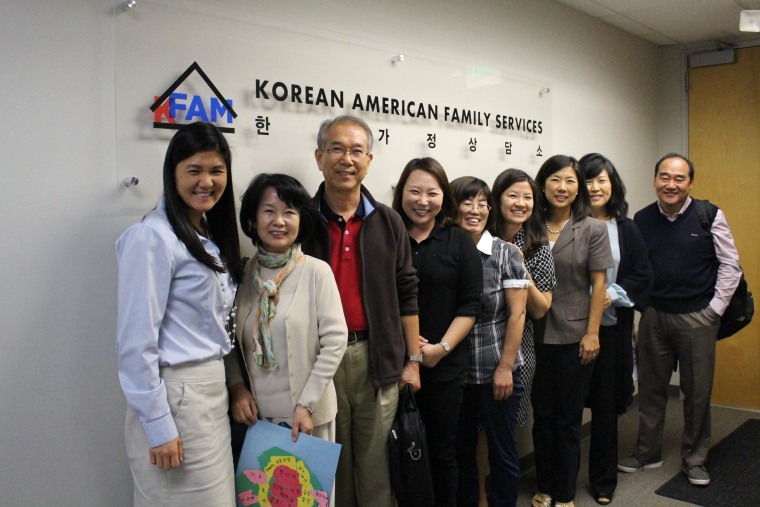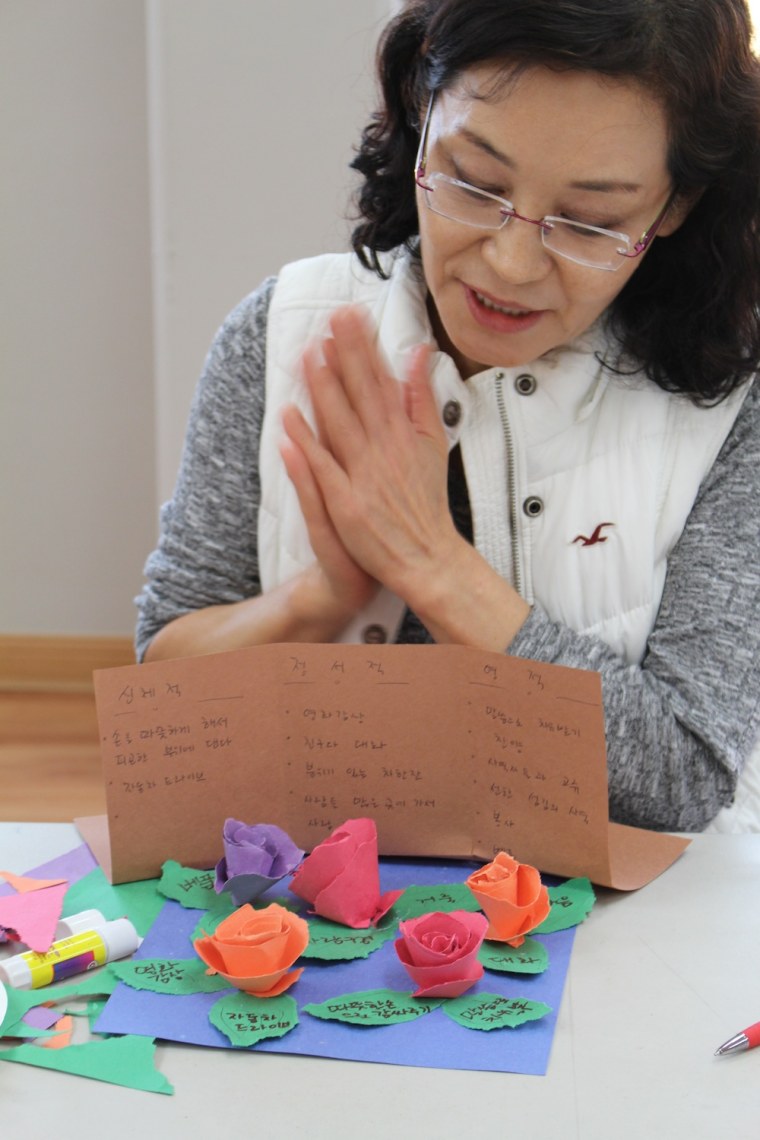Many Korean-American survivors of domestic violence go first to their faith leaders for guidance, a nonprofit found in an in-house survey, but when the survivors approached those leaders, the leaders were unprepared.
That finding prompted the Los Angeles-based Korean American Family Services (KFAM) to host a Korean-language training about domestic violence targeted at faith leaders, the first of its kind in Southern California, according to the organization. The first leaders to finish program graduated earlier this month.

“In the Korean community, there’s a huge stigma against things like getting professional counseling services and a stigma against domestic violence,” Connie Chung Joe, executive director of KFAM, told NBC News. “So when people have issues, especially intimate family or relationship issues, they’re much more likely to talk about it with their pastors than they are to go to on outside professional agency ... Our view is by training faith leaders in our community, we want them to become first responders, to recognize that domestic violence is happening and know how to respond and be able to refer their community members to come to places like KFAM for more help.”
RELATED: Asian-American Advocates Work to End Stigma of Domestic Violence
“Even with that underreporting, there are still so many Korean cases that do make it to the courts for domestic violence, and that means there’s a much bigger hidden problem that we’re not seeing.”
KFAM, which is dedicated to strengthening and supporting Korean Americans in the greater LA area, previously conducted its own internal study on domestic violence in the community, Joe said.
In a focus group of eight Korean immigrant domestic violence survivors, KFAM found that seven identified as Christian and all seven had approached a faith leader for assistance before seeking help from professional services. In all of those cases, KFAM found that survivors were disappointed with the response or information provided by the faith leader.
“They said in some cases, the person seemed to be minimizing what had happened, or they encouraged them to keep working it out with their partner, or they had given incorrect information like, ‘Unless your life is being threatened with a gun, a shelter won’t take you,’” Joe said. “Once we heard how many of our survivors were going to the faith leaders and how little the faith community seems to have knowledge and resources to help them, we felt this was a priority.”
One of the factors that comes into play when church leaders deal with domestic violence victims is that they believe it is their role to keep families together, according to Joe.
RELATED: Korean-American Coalition Created to Address Domestic Violence on National Level
“I think a lot of church leaders feel like this is a private family affair and don’t feel comfortable or don’t know how to get involved,” she said. “They think the role of shelter is to separate woman and child from husband. If they refer victims to domestic violence agencies, what [they think] they’re doing is ripping the family apart.”

A total of eight faith leaders graduated from the course, which took place during an eight-week period. Topics covered during the training sessions included how domestic violence laws are enforced, how cases are prosecuted in the United States, and legal remedies for immigrant victims.
Joe said that the most common clients KFAM sees are immigrant women in their mid-30s to late 40s who tend to only speak Korean or have limited English proficiency.
“In a lot of cases, they are kind of isolated in the U.S. so their husbands tend to be breadwinners and tend to have been in the US longer and speak English better,” she said.
Quantitative data about domestic violence among Korean Americans is limited because, while it is common in the community, Joe said, it’s not always talked about.
“I think a lot of church leaders feel like this is a private family affair and don’t feel comfortable or don’t know how to get involved."
“There’s a lot more hidden cases of domestic violence in our communities than others,” she said. “Even with that underreporting, there are still so many Korean cases that do make it to the courts for domestic violence, and that means there’s a much bigger hidden problem that we’re not seeing.”
With its recently concluded training session, Joe said KFAM hopes faith leaders will see domestic violence as a community issue and one that the church can become involved in.
“Our view is not to tear families apart, it’s to make sure we have happy and loving families and to support that in our community,” she said. “We want to see churches working with us to address domestic violence.”
Follow NBC Asian America on Facebook, Twitter, Instagram, and Tumblr.